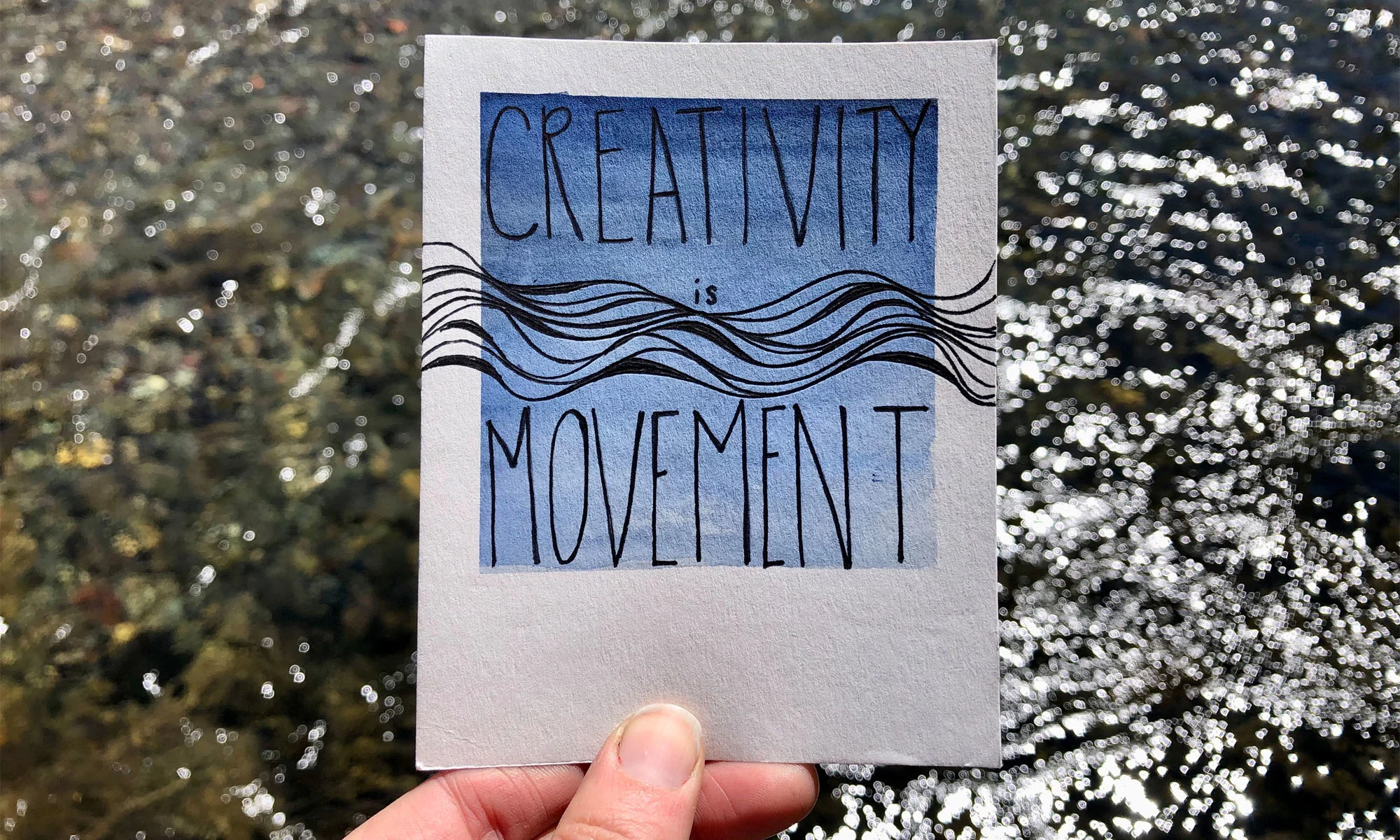The Creative Fuel Series: You Need a Summer Break
- 29 June 2022
- ByAnna Brones
- 2 min read

Summer break.
Remember what that felt like when you were younger? Think back to when you were a kid, and what it felt like to count down to the final day of school, and the thrill that came with waking up the next day, the promise of an entire summer ahead of you, ripe for exploration.
If you’re in a certain age category, then your childhood summers were spent without cell phones, without internet. When you woke up that first day of summer vacation there was a feeling of expansiveness, that anything was possible.
But what does summer look like nowadays for most of us?
If you live in the United States, your average number of vacation days is very low compared to other countries (and it’s the only advanced economy that does not federally mandate any paid vacation days). We could blame it on policy, but our work-all-the-time culture is something that many of us have internalized. Even when Americans get vacation days, we’re incredibly bad at taking them. A 2019 study found that over half of Americans didn’t take all of their paid vacation days, amounting to a total of 768 million paid vacation days unused and withering up in the corner of the office under the artificial lighting.
There is No Shame in Taking a Break
I have an image saved on my phone that I saw last year, a meme about the European out-of-office versus the American version:
European out-of-offices: “I’m away camping for the summer. Email again in September”
American out-of-offices: “I have left the office for two hours to undergo kidney surgery but you can reach me on my cell anytime”
If you’re a small business owner or independent creative, you’re in charge of your own schedule, but that cultural expectation to work all the time can be difficult to resist. It has become so deeply embedded in our psyche that there’s even “vacation shaming,” we feel guilty for taking time off.
There is no shame in vacation. There is no shame in rest. There is no shame in taking a pause. In fact, running a successful business means knowing how to prioritize and plan for all of these things.
“Rest is so necessary. I often feel deeply, deeply unrestful. I need to move. I’m very driven in that sense. But I’ve learned that I also need to rest, and process, and take necessary downtime regularly. That’s a part of it as well—it’s not just resting, it’s resting regularly. What we need as humans is the basics—love, food, water, and rest,” said Fariha Róisín, author of Who Is Wellness For: An Examination of Wellness Culture and Who It Leaves Behind, in an interview with Self. “But our capitalist world forces you to prioritize productivity, so you have to learn to say, “No, I’m actually going to take today off” if you’re able to, or, “I’m going to take it really slow today.” Finding work that allows you to do that is ideal, but I hope we can change the language and mindset around work on a societal level to make rest more accessible to everyone. It’s very North American to work yourself to the bone.”
Resist Hustle Culture
That relentless approach to work means that for many of us, work-life balance is incredibly elusive. Work seemingly seeps into every corner of life, a shift that was exacerbated when we could take email with us everywhere and work was all of a sudden just a click away. Companies were once boasting of the beautiful future where we were sending faxes from the beach, and nowadays getting some time when we’re entirely “off” can require a significant amount of planning. But it’s essential. We are not made to work all the time, we need pockets of rest to help restore us and keep us inspired.
The pandemic of course shifted how a lot of people thought about work (Elizabeth Christian’s “Hustle Slower” print comes to mind, a reminder that when we are working, we could go about it in a different way), and there’s a growing body of research that makes an argument for a shorter work week. Some companies, including Big Cartel, have adopted a 4-day work week, and the concept is gaining government traction as well. The United Kingdom is currently undergoing an extensive pilot study to put a 4-day work week into practice. With over 3,300 people across 70 different companies in all kinds of industries, it’s the world’s largest 4-day workweek pilot to date. In the United States, Southern California Congressman Mark Takano proposed a bill to shorten the standard 40-hour work week to 32. That may sound incredibly progressive, but in the 1930s, with Senate and presidential support, the United States almost had a 30-hour workweek.
Make a Plan to Recharge
If you’re an independent creative or small business owner, you may want to consider how you can incorporate some of these things into your own workflow. Summer break this year might mean switching to a four-day work week and ensuring that you have an extra day off all summer long.
If you want to take a longer break, consider what prep work needs to be done so that your business can run in your absence. Maybe you even want to put your shop on a summer break for a week or two? As artists and creatives, we can help to set the expectation that we are not available at all times, and that rest is a crucial component of the work that we do.
I think of friends and family in Europe, where several consecutive weeks of vacation isn’t a luxury but a given. The reality is that we can’t all block out that same amount of time, and we can’t take a full blown summer vacation. Which makes it even more essential to find a few pockets of rest here and there.
Here’s a little writing exercise for you. On a piece of paper, answer this prompt: “What does your ideal summer look like?” Make a bullet list of all the activities that feel like your ideal summer, the things that make summer truly feel like summer. Now, finish this prompt: “What does your actual summer currently look like?”
We all know that what we want things to look like and what they actually look don’t always line up, but this is a good little exercise for dialing into what you crave out of summer, and what to incorporate if you need things to feel a little more, well, summery. You might be able to block out a vacation for a couple of weeks, but if you can’t, you can figure out how to incorporate some of those restorative and joyful summer things into your everyday.
Planning for rest is essential to your creative process and it’s essential to your success as a business owner.
Make a plan for your summer break. You need it.
29 June 2022
Words by:Anna Brones
- Share

